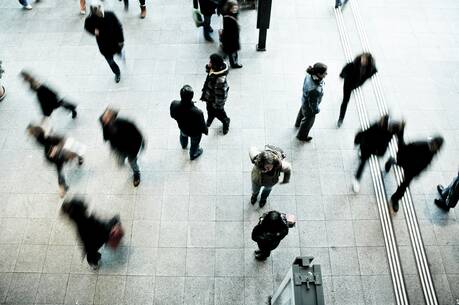VATICAN CITY (CNS)—After a half-hour private meeting in the library of the Apostolic Palace, Pope Francis gave the prime minister of Ukraine a bronze plaque featuring a bird and a flower alongside the inscription, “Peace is a fragile flower.”
In return, Prime Minister Denys Shmyhal gave Pope Francis a book of photographs documenting the damage inflicted by Russian bombings of his country in a war that has lasted 14 months already.
After speaking with the pope, Shmyhal also met April 27 with Cardinal Pietro Parolin, Vatican secretary of state, and with Archbishop Paul R. Gallagher, the Vatican foreign minister.
“During the cordial discussions, which took place in the Secretariat of State, various matters connected to the war in Ukraine were highlighted, with particular attention to the humanitarian aspects and efforts to restore peace,” the Vatican press office said in a communiqué.
In addition, the statement said, “several issues regarding the life and activity of the church in the country were raised.”
Prime Minister Denys Shmyhal gave Pope Francis a book of photographs documenting the damage inflicted by Russian bombings of his country in a war that has lasted 14 months already.
Shmyhal was in Rome for a formal conference, sponsored by the Italian government, on the reconstruction of Ukraine and its economy.
After his meeting with the pope, Shmyhal told reporters at the Foreign Press Association that he had asked for the Vatican’s assistance in returning to Ukraine children taken by force to Russia.
The Ukrainian government’s “Children of War” website claimed, as of April 27, that 19,393 children had been forcibly removed from Ukraine and taken to Russia.
In March the International Criminal Court issued an arrest warrant for Russian President Vladimir Putin and for his commissioner for children’s rights, saying there are “reasonable grounds” to believe they “bear criminal responsibility for the unlawful deportation and transfer of Ukrainian children from occupied areas of Ukraine to the Russian Federation.”
Ukrainian Foreign Minister Dmytro Kuleba, who also was in Rome for the reconstruction meeting, told the news channel Sky TG24 that Ukrainian President Volodymyr Zelenskyy’s invitation for Pope Francis to visit Kyiv remains open.
Pope Francis has said he would like to visit Kyiv but only if he also could visit Moscow—going to both cities to promote dialogue and peace.
“I don’t know why he hasn’t come yet; we have talks with the Vatican and the invitation has not been rejected, but we still don’t have an official date for a visit by the pope,” Kuleba said.
Pope Francis has said he would like to visit Kyiv but only if he also could visit Moscow—going to both cities to promote dialogue and peace.
“I will go to both or neither,” he told La Nacion, an Argentine newspaper, in March.
The pope’s meeting with the prime minister came one day before Pope Francis was scheduled to fly to Hungary, which borders Ukraine. The pope is scheduled to meet with Ukrainian refugees there.







